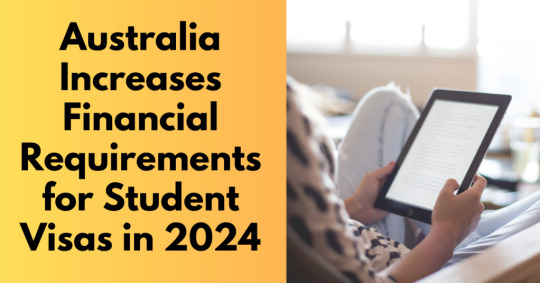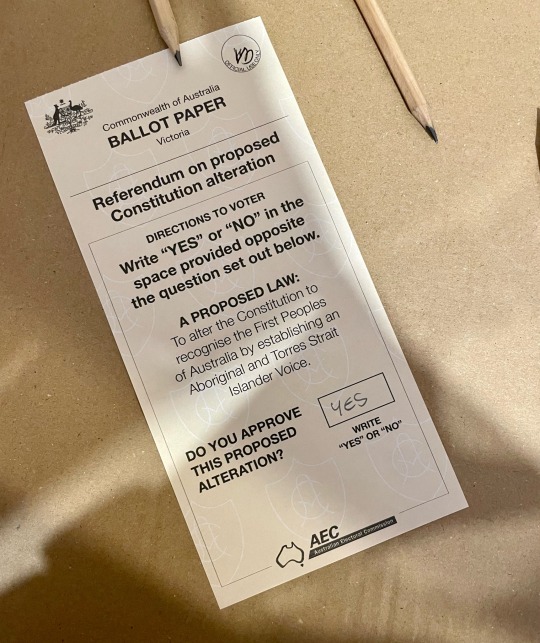#Australian Higher Education
Explore tagged Tumblr posts
Text
2025 Trends: Expanding Opportunities and Caps in Australian Higher Education
As the global education landscape evolves, Australia continues to be a favored destination for international students. In 2025, we are witnessing a significant shift in the policies of Australian universities regarding international student intake. While 23 universities are actively boosting their intake, 15 others are reducing their caps. This dual approach reflects the diverse strategies institutions are adopting to navigate the complexities of global education.
The Rise in International Student Intake
1. Growing Demand for Education
The demand for quality education in Australia remains robust. Factors such as the country’s high academic standards, multicultural environment, and post-study work opportunities make it an attractive option for students worldwide. In response, 23 universities have decided to increase their international student intake, aiming to enhance their global presence and diversify their campuses.
2. Strategic Partnerships
Many universities are forming strategic partnerships with institutions in other countries, creating pathways for students to study in Australia. These collaborations often include joint programs and exchange initiatives that facilitate a smoother transition for international students.
3. Enhanced Support Services
To accommodate the influx of international students, universities are investing in enhanced support services. This includes academic advising, mental health resources, and cultural integration programs, ensuring that students feel welcomed and supported throughout their academic journey.
The Reduction of Caps by 15 Universities
1. Quality Over Quantity
While some universities are expanding, 15 institutions are opting to reduce their international student caps. This decision often stems from a commitment to maintaining the quality of education and ensuring that resources are not overstretched. By limiting numbers, these universities can provide more personalized attention and support to each student.
2. Focus on Local Enrollment
Some universities are shifting their focus towards local students, aiming to strengthen community ties and support domestic education. This approach may involve reallocating resources to enhance programs and services for local students.
3. Adapting to Market Changes
The education market is dynamic, and universities must adapt to changing trends. Economic factors, visa regulations, and global events can influence international student enrollment. By reducing caps, some universities are positioning themselves to respond more effectively to these changes.
Conclusion
The contrasting approaches of increasing and reducing international student caps among Australian universities in 2025 highlight the complexities of the higher education landscape. As universities navigate these challenges, they must balance the need for growth with the commitment to quality education and student support.
For prospective international students, this is an exciting time to explore opportunities in Australia. Whether you’re considering a university that is expanding its intake or one that prioritizes quality, there are numerous pathways to achieving your academic goals in this vibrant country. As always, thorough research and preparation are key to finding the right fit for your educational journey.
0 notes
Text
Understanding Australia’s Intake - Want to study abroad and understand Australia's intake? Read this article for a comprehensive guide to Australia's intake of international students planning to embark on their educational journey in this diverse and welcoming country.
#abroad study in Australia#Study Abroad Australia#study in Australia#Australian universities#Australian University Intakes#Australian Higher Education#Guide to study abroad Australia#Guide for International Students
0 notes
Text
#ustralia international student cap 2025#new Australian visa policy#impact on international students#student visa changes#Australia immigration policy#Punjabi Australian news#student enrolment cap#education providers in Australia#Australia higher education policy#Australian punjabi news channel#radio station Melbourne#Radio haanji#Indian radio stations sydney#Australian radio stations in Punjabi#Punjabi Australian News#Australia Indian radio station#Indian radio stations sydney
0 notes
Text
Nepalese Students in Australia: Why Australia is the Preferred Study Destination
Australia has become a top destination for Nepalese students seeking higher education abroad. With over 46,000 Nepalese students studying in Australia as of 2020, the country offers a safe, welcoming, and student-friendly environment. Major cities like Sydney, Melbourne, Brisbane, and Perth are particularly attractive due to their livability, climate, and cultural diversity.
Nepalese students benefit from Australia's high-quality education, affordable tuition, and work opportunities, including the 40-hour fortnight work provision and the Post-Study Work (PSW) visa. Popular courses include IT, Business, and Nursing.
For more details on why Australia is an excellent choice, visit Nepalese students in Australia.
#Nepalese students in Australia#study in Australia from Nepal#international students in Australia#higher education in Australia#Australian universities#studying abroad#work opportunities for students in Australia#affordable education in Australia#post-study work visa Australia#Nepalese student community in Australia
0 notes
Photo

(via Australia Increases Financial Requirements for Student Visas in 2024)
#australia student visa 2024#study in australia#visa policy changes#education in australia#australian immigration#higher education abroad#australia visa update 2024#amit kakkar easy visa
0 notes
Text
Which are the Best Courses to Study after Completing AUSMAT?
Top 10 Degree Programmes to Study After Australian Matriculation (AUSMAT) in Malaysia Top 10 Degree Programmes for Malaysia’s AUSMAT Graduates One of the main aim of getting a university education in Malaysia is to find a stable job so that you can take care of yourself and your family. Technological Advancements that will Affect Future of Jobs related to your Course of Choice It is important to…

View On WordPress
0 notes
Text
The Top 10 Countries with the Best Immigration Policies and Benefits
Check out the Top 10 countries which are open for immigration with a bunch lot of opportunities. Don't miss out.
Immigration is a hot topic around the world, and for good reason. Many people are looking for a better life, and that often means leaving their home country and starting a new in a foreign land. However, not all countries are created equal when it comes to immigration policies and benefits. Some countries have strict requirements and limited benefits, while others are much more welcoming and…

View On WordPress
#China Skilled Workers Visa to work in New Zealand#Citizenship and Living in UK#Explore visa options for working in Australia#Highly Skilled Foreign Professional program for Japan#Highly Skilled Professional Visa for Japan#How to Apply as a Skilled Worker in Norway#How to Apply for a Residence Permit for Studies in Higher Education#How to Apply for a Work Permit to work in Sweden#How to Apply for Swedish Citizenship#How to Apply for Visitor&039;s Residence Permit for Sweden#How to Become a Singapore Citizen#How to Become a Student&039;s Pass Holder#How to become an Australian Citizen#How to create Immi Account#How to get a German Residence Permit#How to get a German Work Permit#How to get Green Card#How to get Skilled Worker Visa in UK#how to move work and live in germany#Immigration and Citizenship in Australia#Immigration and Citizenship in New Zealand#Immigration and Citizenship in Singapore#Points Calculator Tool for Australian Immigration#Study in UK on a Student Visa#Top 10 Countries with the Best Immigration Policies and Benefits#US Citizenship and Immigration Services#Work and Live in Germany
1 note
·
View note
Link
Australia’s international education system has become a “Ponzi scheme” in which overseas agents are paid bonuses to lure foreign students with the promise of full-time work, a parliamentary inquiry has heard.
The chief executive of the International Education Association of Australia, Phil Honeywood, on Tuesday said universities were offering bonuses to education agents on top of commissions to funnel students to their courses.
He told the inquiry that sometimes money was being “handed in an envelope under the table” to unregulated agents who directed young people into courses that didn’t suit their talents or skills.
...
Honeywood said the practice had been exacerbated by the previous federal government removing the cap on the number of hours international students could work. This had attracted “ballooning numbers” of “non-genuine” applications from south Asia, particularly India and Nepal, the inquiry heard.
#australian universities#australian education#higher education#australia news#australian politics#students#under-the-table#money#sweeteners#bribes#kickbacks#work#ballooning applications#numbers#visas#India#Nepal#Australia#news#Triple A#The Guardian#world news
0 notes
Note
WHY IS COLLEGE SO EXPENSIVE OVER THERE?! Like do they promote a higher education or just be like nah fuck it you don’t wanna be in debt?!
IS THIS WHY THEY ARE SO INSANE FOR SPORT SCHOLARSHIPS?!
*concerned Australian noise*
oh no you basically HAVE to go to college unless you have a really specific career path like hair stylist (different schooling) or mechanic or taxidermist
42 notes
·
View notes
Text
I'm a big fan of localisation. I believe the goal of a translation should be to keep as much meaning and nuance as possible from the original. Localisation is key to this. Language and culture are inextricably linked, which means you must engage in cultural education and/or localisation to successfully translate. Cultural education is preferable, but in many cases it is not appropriate (not great having to pause every few seconds to read a translator note when you want to turn your brain off and watch a show). However, I think sometimes, translators take the wrong approach to localisation, and I want to talk about that here.
There was an example of "bad" localisation given by a twitter user in this Sarah Moon video: the example was anime characters subbed to use zoomer slang like "sus" and "cringe". I actually think that is an example of good localisation. I am not talking about that kind of thing.


This scene from 深夜食堂 (Midnight Diner) made me want to write this post. パチンコ has been translated as "pinball". I'm sure there are people reading that translation and cringing, just like I did! I tried to put my finger on what irked me so much about it and I realised: this localisation is localising the wrong part of the meaning of パチンコ.
Part of localising is choosing the closest cultural equivalent of a concept. This inevitably means losing some of the specific details of the original word, but usually those details aren't important (if the whole cultural concept is important, you should probably just use a translator's note IMO). For example, the word パチンコ has lots of bits of meaning in it: "gambling" "played on a machine", "time killer", "uses small metal balls", "generally played by older men", "big flashy lights", "money sink", and so on. In this context, the character is talking about "winning money" from パチンコ, so you'd expect at the very least that the localised word would preserve the "gambling" and "money sink" bits of meaning. However, instead they chose to preserve the "small metal balls" and "big flashy lights" bits of meaning (まさかの!). This is a very silly choice because those bits of meaning don't have a shred of relevance to this scene, or any other scene in this story at all. I can see a context in which "pinball" is the best possible localisation for パチンコ. But this was not it, and not even close. I've never heard of anyone winning money from pinball.
I think if I were a translator, my process for localisation would be to break down the word into those bits of meaning, then rank the bits of meaning in terms of relevance to the line/scene/story, then pick a localised word that hits as many of the higher ranked meanings as possible. In this case, there are many better localisations (read: localisations with meanings more relevant to the scene). If I were localising it, I would probably do this: "He took all the money I won from the pokies." but I am aware that pokies is an Australianism. Assuming I was localising for a global english speaking audience: "He took all the money I won from a slot machine".
(TBH though, I don't think パチンコ needs to be localised because the english equivalent loanword, pachinko, is already well known enough to be used in english subtitles imo)
#localisation#translation#japanese#langblr#japanese language#language#linguistics#jimmy blogthong#official blog post
223 notes
·
View notes
Note
Are there any statistics that show just how gendered kink communities are when it comes to all aspects of bdsm (like dominance/submission, sadism/masochism)? What demographics are most likely to engage in kink? How many people engage in paraphilias and general reasons as to why?
Yes! To start, I want to point out the some of the issues we have with research in this area:
The BDSM/kink community is often “underground," limiting outside-researchers’ ability to study them as a group.
These practices are taboo in many cultures, meaning some individuals likely lie, hide, or refuse to answer questions about this topic in population surveys.
There's disagreement about what specifically constitutes "kink/BDSM"; ambiguities in definition lead to inconsistent results across studies.
These – and other – limitations have to be kept in mind when considering the research on this topic. That being said, here's what I did find:
Are there any statistics that show just how gendered kink communities are when it comes to all aspects of bdsm (like dominance/submission, sadism/masochism)?
This international survey [1] solicited responses from individuals online (FetLife and Facebook/Reddit discussion groups) and through university research organizations and other sex-related organizations. From their final sample size of 810, they looked at the relationship between the "side of the slash" (i.e., where "left" is dominance-related roles and "right" is submissive-related roles). From this:
41% of men were "left only" compared to 9% of women
32% of men were "right only" compared to 62% of women
29% of both men and women were "both"
This clearly illustrates the gendered nature of the community roles.
Other studies:
This representative Finnish study [2] found that of those who had participated in BDSM, 37% of women had "tried" a submissive role compared to 23% of men.
A 2019 review [3] found that women were more likely to report interest/participation in a submissive role.
A 2013 study [4] found that 75% of women reported assuming the submissive role compared to 33% of men. This same study found that only 8% of women reported assuming the dominant role compared to 48% of men.
What demographics are most likely to engage in kink?
To answer this question, we need representative population studies.
This 2015 representative USA study [5] looked at specific behaviors and found about 32% of people had "spanked or been spanked as part of sex", which was the highest percentage for the list of possible activities. (They do not report the value for engagement in any kink activity.)
This 2008 representative Australian study [6] found 2.2% of men and 1.3% of women engaged in BDSM in the previous year. In addition, bisexual people are substantially more likely to have engaged in BDSM
This 2017 representative Belgian study [7] found ~40% of both men and women had tried BDSM. However, when considering scale scores, instead of binary interest, men reported significantly higher interest in every category. In addition, men were substantially more likely to report interest in all of the fetishes asked about. Again, non-heterosexual people were also more likely to report interest in BDSM.
Lastly, this 2019 review of 60 studies [8]:
Found widely varying estimates for participation in BDSM, ranging from 2 to 20%. However, up to 70% reported at least one BDSM fantasy. (We should keep in mind here how these studies are operating with varying definitions of BDSM.)
Confirms that men are more likely to engage/be interested in domination, and women in submission. They also confirm "men are more likely than women to report engaging in unusual sexual behaviors".
Indicates that "BDSM practitioners appear to be white, well educated, [and] young" as well as "non-heterosexual"
How many people engage in paraphilias
Paraphilias are usually defined by what is considered "unusual" sexual behavior [9], while paraphilic disorder applies when the behavior has a substantial negative effect on the individual/those around them [10].
It's possible up to 10% of people may express paraphilic interest, but cultural differences mean this figure may not be widely generalizable [9]. Further, almost all of these individuals are male.
In addition, most individuals with paraphilic disorders are male, with some specific disorders being considered a male-specific disorder [10].
and general reasons as to why?
There are a lot of theories for people's interest in kink/BDSM/paraphilias. The earlier review [8] discusses many of the theories for kink/BDSM (which has overlap with paraphilias). These include:
Previous child abuse/trauma
Attachment disorders/issues
Disinhibition ("that having social power leads to behavioral disinhibition; powerful people are more likely to act impulsively because they can")
Neurological and biological differences
Leisure/recreational activity
Evolution ("sexual arousal by a power difference between partners is a successful mating strategy")
Sex drive (i.e., having a higher sex drive)
All of these have some supporting/opposing research. The main point I drew from this is that it is "highly unlikely that there is a single cause of BDSM interests".
Conclusion
In conclusion, most kink practitioners fill gender-stereotypical roles. Prevalence rates are highly dependent on what behaviors are counted as kink, although men tend to be more likely to engage in/fantasize about most behaviors.
I hope this helps you!
References under the cut:
Bryce Westlake & Isabella Mahan (15 Nov 2023): An International Survey of BDSM Practitioner Demographics: The Evolution of Purpose for, Participation in, and Engagement with, Kink Activities, The Journal of Sex Research, DOI:10.1080/00224499.2023.2273266
Paarnio, M., Sandman, N., Källström, M., Johansson, A., & Jern, P. (2023). The prevalence of BDSM in Finland and the association between BDSM interest and personality traits. The Journal of Sex Research, 60(4), 443-451.
De Neef, N., Coppens, V., Huys, W., & Morrens, M. (2019). Bondage-discipline, dominance-submission and sadomasochism (BDSM) from an integrative biopsychosocial perspective: A systematic review. Sexual medicine, 7(2), 129-144.
Wismeijer, A. A., & Van Assen, M. A. (2013). Psychological characteristics of BDSM practitioners. The journal of sexual medicine, 10(8), 1943-1952.
Herbenick, D., Bowling, J., Fu, T. C., Dodge, B., Guerra-Reyes, L., & Sanders, S. (2017). Sexual diversity in the United States: Results from a nationally representative probability sample of adult women and men. PloS one, 12(7), e0181198.
Richters, J., De Visser, R. O., Rissel, C. E., Grulich, A. E., & Smith, A. M. (2008). Demographic and psychosocial features of participants in bondage and discipline,“sadomasochism” or dominance and submission (BDSM): Data from a national survey. The journal of sexual medicine, 5(7), 1660-1668.
Holvoet, L., Huys, W., Coppens, V., Seeuws, J., Goethals, K., & Morrens, M. (2017). Fifty shades of Belgian gray: The prevalence of BDSM-related fantasies and activities in the general population. The Journal of Sexual Medicine, 14(9), 1152-1159.
Brown, A., Barker, E. D., & Rahman, Q. (2020). A systematic scoping review of the prevalence, etiological, psychological, and interpersonal factors associated with BDSM. The Journal of Sex Research, 57(6), 781-811.
Bhugra, D., Popelyuk, D., & McMullen, I. (2010). Paraphilias across cultures: Contexts and controversies. Journal of sex research, 47(2-3), 242-256.
Beech, A. R., Miner, M. H., & Thornton, D. (2016). Paraphilias in the DSM-5. Annual review of clinical psychology, 12(1), 383-406.
13 notes
·
View notes
Text

Today, Australia is voting in a referendum on the Voice to Parliament: an Aboriginal and Torres Strait Islander advisory body, enshrined in our constitution, that will give our First Nations peoples a say on policy that affects them. A Voice would be the first step in Australia reckoning with its history: a history which has so far ignored and silenced — often violently — the voices of the oldest living culture on the planet.
It is not lost on me that I am a non-indigenous person being asked —again — to weigh in on the future of indigenous Australians. I don’t take that lightly, nor am I sure whether a referendum is right for this. I would have felt perfectly comfortable with a Voice being enshrined without my input. Maybe that would have spared my indigenous friends the emotional toll of begging for political recognition.
But it is the way it is, so I’m voting Yes. I’m voting Yes on Wurundjeri land. Stolen land. Land where I live the kind of comfortable life out of reach for many indigenous Australians.
I’m voting Yes because it’s time for real reconciliation.
And I’m voting Yes because here hasn’t been a single argument from the No camp that I could square with doing the right thing. They say the Voice will divide Australia, but Australia is already divided. They say it will give indigenous Australians an unfair advantage. It won’t, but it will hopefully start undoing the years of unfair privilege white Australians have had in deciding their fate. The No camp has told us, ��If you don’t know, vote no,” as if that’s an acceptable thing for our country’s civic discourse. As if the answer to not knowing is not to find out, not to ask questions, not to make an informed decision weighed by evidence.
They say indigenous Australians don’t want it. The polls say eighty percent of them do.
In all areas related to quality of life, non-indigenous Australians are leaps and bounds ahead of the people that lived on this land first. Indigenous Australians aren’t living as long as non-indigenous Australians. They are being incarcerated in disproportionate numbers. They don’t have the same access to high quality education. Domestic violence and sexual abuse rates are disproportionately higher in indigenous communities. The economy, housing, employment…the list goes on and on and on and the stats remain dire.
We are already living in a No world. It isn’t working.
It’s time for a change. I don’t know if we’ll get it. I’m fearful that we are too conservative and too selfish a nation to take this one small step, but I hope desperately when I wake up tomorrow we will have said, “Yes. Have a seat at the table. It’s long overdue.”
#bear with me on this#I know there’s a lot going on in the world but I had to get this out#the voice to parliament#long post#auspol
89 notes
·
View notes
Text
How To Apply to Study MBA in Australia From Nepal: A Step-by-Step Guide
If you're a student from Nepal aiming to pursue an MBA in Australia, this guide offers essential steps to navigate the application process. From researching top programs to securing a student visa, it provides everything you need to know for a smooth transition.
Studying an MBA in Australia offers global career prospects, networking opportunities, and access to world-class education. The post covers researching MBA programs, understanding admission requirements, and preparing your application.
For a detailed step-by-step guide, including visa application tips and life in Australia, visit How To Apply to Study MBA In Australia From Nepal.
#MBA in Australia#study in Australia#MBA for Nepali students#study abroad#Australian universities#MBA admission process#student visa Australia#apply for MBA Australia#MBA programs#higher education#MBA application tips#international students#studying abroad from Nepal#MBA guide for Nepalese
0 notes
Text
Miscellaneous Star Wars headcanons :3
((This aint all of them but we’d be here forever if i put all of them))
Ahsoka grows to be taller than Anakin (yes Anakin is offended by this)
Anakin’s first language isn’t Basic (its not even his second its like 4th. Outer Rim folk don’t speak a lotta Basic)
Tatooine is like Australia, Colombia and Texas combined SO the accent is Australian, Colombian and Texan combined. Luke’s Tatooine accent leans harder on the Texan side. He says howdy :)
Leia studied former politicians from the Pre-Empire days (because Bail wants his girl to be EDUCATED) and accidentally ends up learning a little about Padmé.
Leia’s first words would’ve been mama if Padmé and Anakin had gotten to raise their child
Luke felt isolated as a kid, even though he was very social. Partly because kids found him weird, partly because ‘Skywalker’ is a slave name.
Obi Wan doesn’t find it gross that Anakin eats bugs, he finds it gross Anakin eats RAW UNSEASONED bugs. So uncivilised
The Clones on Kamino have hug piles. (They need comfort ok)
Rex cries a lot in private.
Even though Aalya and Luminara are a few years older than Anakin, Anakin befriended them really quickly became friends :)
Canonically Anakin is a really good artist but doesn’t show people SOOOOooo the headcanon is Obi Wan finds a sketch of him one day by Anakin while cleaning up after Anakin’s mess in his room and loves it so much he hands it in how own room.
Padmé proposed to Anakin
Padmé gets just as jealous as Anakin, she’s just not as melodramatic and can destroy people with words
Anakin smokes from time to time (don’t tell Obi Wan or Padmé they will kill him)
Obi Wan had 0 spice tolerance before living on Tatooine and had to build it up when he started living there
Anakin, Leia and Luke are all autistic
Han is surprisingly good at mingling with ‘the higher ups’ during politics dinners/parties with Leia
Shmii was a lil bit Force sensitive and helped shield Anakin when he was little
Padmé experienced prenatal depression and didn’t tell Anakin. Or anyone.
Shmii and Anakin couldn’t write and Anakin only knew how to read a few words. Anakin learnt when he was taken to the temple
Togruta’s yawns like a snake. When Ahsoka yawned infront of Rex for the first time his soul left his body
Yoda hunts frogs in the ponds within the Temple. Little Dooku saw him donit once. No one believed him
Owen mumbles to Cleigg and Shmii while he works like they’re still alive and with him
Shmii would tell Owen tales of what Anakin was like
Both Leia and Anakin make attempts to befriend any droids they meet. Its polite :)
Luke would dig for bugs with Beru and they’d pan fry them for dinner
Vader heard so much gossip because officers and stormtroopers just assumed he wasn’t listening to their whispering.
Ahsoka is banned from any and all kitchens because she burns 99.99% of everything she cooks
Shaak Ti had to babysit lil Anakin once and found him delightfully courious
Anakin swears in Hutesse to get away with it infront of Ahsoka. Ahsoka figures it out and starts repeating after him.
Anakin is banned from 501st game nights because he’s too competitive
Obi Wan experienced really bad nightmares after Qui Gon’s death for months
Anakin thrives in disfunction
Leia never really allowed herself to properly mourn her parents. Breha and Bail always plagued her mind.
Padmé is a dancey drunk. Anakin finds this hilarious
#There are 35 headcanons here ooooooo booooyyy#i have so many thoughts#so many things to say#many many thoughts#star wars#star wars fandom#sw fandom#anakin skywalker#leia organa#padme amidala#sw#obi wan#ahsoka tano
65 notes
·
View notes
Text
Top 10 Degree Courses to Study After AUSMAT
Which are the Top 10 Degree Programmes to Study After Australian Matriculation in Malaysia? The 1-year Australian Matriculation (AUSMAT) programme is a Year 12 curriculum of Western Australia that is specifically tailored to prepare students with academic strength and essential skills to thrive in university. Students who have taken the AUSMAT has gone through a balanced assessment structure…

View On WordPress
0 notes
Text
The Top 10 Countries with the Best Immigration Policies and Benefits
Check out the Top 10 countries which are open for immigration with a bunch lot of opportunities. Don't miss out.
Immigration is a hot topic around the world, and for good reason. Many people are looking for a better life, and that often means leaving their home country and starting a new in a foreign land. However, not all countries are created equal when it comes to immigration policies and benefits. Some countries have strict requirements and limited benefits, while others are much more welcoming and…

View On WordPress
#China Skilled Workers Visa to work in New Zealand#Citizenship and Living in UK#Explore visa options for working in Australia#Highly Skilled Foreign Professional program for Japan#Highly Skilled Professional Visa for Japan#How to Apply as a Skilled Worker in Norway#How to Apply for a Residence Permit for Studies in Higher Education#How to Apply for a Work Permit to work in Sweden#How to Apply for Swedish Citizenship#How to Apply for Visitor&039;s Residence Permit for Sweden#How to Become a Singapore Citizen#How to Become a Student&039;s Pass Holder#How to become an Australian Citizen#How to create Immi Account#How to get a German Residence Permit#How to get a German Work Permit#How to get Green Card#How to get Skilled Worker Visa in UK#how to move work and live in germany#Immigration and Citizenship in Australia#Immigration and Citizenship in New Zealand#Immigration and Citizenship in Singapore#Points Calculator Tool for Australian Immigration#Study in UK on a Student Visa#Top 10 Countries with the Best Immigration Policies and Benefits#US Citizenship and Immigration Services#Work and Live in Germany
1 note
·
View note